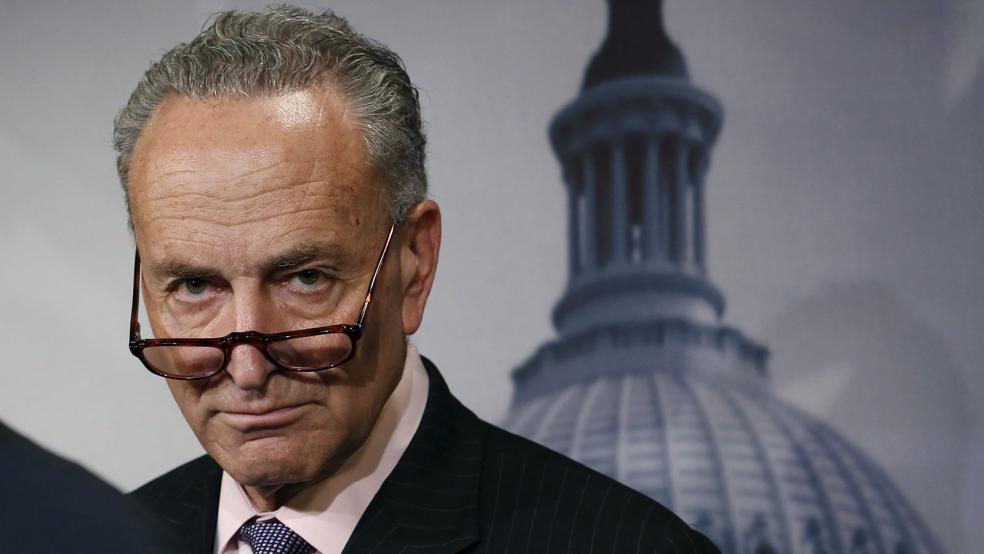As the shock of November’s defeat and the reality of being in opposition finally sink in, Democrats are moving beyond denial and starting to think about how to win in 2018 and 2020. This month’s DNC Chair election is providing an opportunity to discuss what went wrong and how to do better. Although I am not a Democrat, I thought my friends on the left could benefit from an outsider’s viewpoint. And, please don’t worry, I won’t tell you to start acting like Republicans.
Clinton received 2.9 million more popular votes than Trump but lost the electoral college because her voters were concentrated in a few coastal states. Further, she would have won an electoral college majority had she been able to overcome an aggregate Trump margin of just 78,000 popular votes in three states. Trump’s razor thin victories in Michigan, Wisconsin, and Pennsylvania could have been reversed if more Democratic-leaning voters had turned out, if fewer voters had selected a third party candidate or if fewer voters chose no Presidential candidate, voting only in down ballot races.
Related: Will Democrats Stand Up to Trump? Here’s Their First Test
This last phenomenon – large number of voters declining to choose a Presidential candidate - was so unusual that it triggered demands for a recount. In Michigan, for example, 75,000 ballots did not include a Presidential preference, compared to a margin of just 11,000 votes separating the two major candidates. As far as we can tell, these blank votes weren’t caused by errors or fraud: they were the result of voters who disliked both candidates so much that they couldn’t bring themselves to vote for the lesser of two evils.
This is testimony to Clinton’s unattractiveness as a candidate. Hundreds of thousands of voters across the country repelled by Trump and unwilling to vote third party still could not convince themselves to vote for Clinton, despite her depth of experience and centrist platform. These voters, along with others who didn’t show up or voted for Jill Stein, could not accept Clinton’s cozy relationship with corporate interests, the whiff of corruption surrounding her family’s Foundation and her email controversies.
Post-election, Democratic insiders have blamed the Russians and FBI Director James Comey for Clinton’s defeat. And I find that hard to argue: news arising from leaked DNC email messages could have easily cost Clinton 78,000 votes in three states, as could the last-minute reopening (and reclosing) of the FBI investigation.
But blaming external forces is not a solution for winning: all candidates risk running up against such headwinds, including Trump who managed to overcome a hot mic off-air recording that NBC should not have leaked. Between the 1930s and the 1980s, the Soviets intervened in US politics by supporting the Communist Party USA and beaming propaganda to us over short wave radio, so Putin’s actions in 2016 are nothing new – rather just a higher tech version of the same old thing. Comey had been painted into a corner: he had sworn during Congressional testimony to promptly notify Committee members if new evidence turned up, and the cache of Clinton emails found on Anthony Weiner’s computer counted as such evidence.
Related: The Power of the Pink Hat: Here’s How Democrats Can Win America Back
Rather than blaming these circumstances, Democrats should have chosen a candidate not vulnerable to the contents of a disgraced former Congressman’s hard drive. And the DNC and Clinton Campaign should not have written email messages that could later be used against them. Remember that the Democratic National Convention last August was initially rocked by revelations that DNC staff were trying to figure out how to stop Bernie Sanders.
The DNC and Democratic leadership seemed bent on protecting Clinton from serious primary opposition. This turned out to be a gross misjudgment. While the Republican process consisting of 17 candidates hurling mud at one another seemed ugly, it ultimately served a purpose. Jeb Bush, a weak candidate with strong establishment support, was winnowed out as were others that seemed to check all the boxes but weren’t ready for prime time. Trump emerged from this messy process by demonstrating that he had the will to win and the ability to motivate a large base of support.
By contrast, Hillary’s support was a mile wide and an inch deep. And the warning signs of her potential downfall were with us from the beginning of her primary campaign. News of her email server and her clumsy, shifting explanations for it date back to mid-2015. The $225,000 Goldman Sachs speeches were also in the news long before the Iowa Caucus.
But instead of providing an opening for a stronger candidate to replace Clinton, Democratic Party leadership closed the doors to effective opposition. Compared to the Republicans, Democrats held fewer Presidential debates, sometimes scheduling them at low-viewership times. Donna Brazille even abused her post at CNN by feeding town hall questions to the Clinton campaign.
Related: Trump Might Adopt a Democratic Plan to Crack Down on Drug Prices
The fact that Bernie Sanders, who came from outside the party with a far left agenda was able to mount a major challenge to Clinton was another sign of her weakness as a candidate. But now that we have entered the post mortem period, Democrats are in danger of learning the wrong lessons from Sanders’ success. On the unproven assumption that Sanders would have defeated Trump last November, they conclude that Democrats need more progressive candidates going forward to excite the base.
But for every base voter they motivate, hard left candidates may turn off more than one middle of the road voter. The Democrats last experience with a far left candidate – George McGovern in 1972– did not end well: he lost 49 states. The British Labour Party offers its own cautionary tales. The Tories remained in power from 1979 to 1997 largely because Labour did not move toward the middle. Only when Tony Blair proclaimed New Labour and ended the party’s support for nationalizing the means of production, was the party able to defeat the Conservatives, Labour is now repeating this mistake under its far left leader Jeremy Corbyn, failing to capitalize on Tory disorder in the wake of the Brexit vote and David Cameron’s resignation.
I do not believe Sanders would have defeated Trump, but I am pretty sure that Obama or Biden could have. Indeed, Martin O’Malley may have beaten Trump as well. The takeaway is that a center left candidate, advocating an approach similar to Clinton’s, but with a cleaner record and better able to connect with voters would have won in 2016 and will be best positioned to defeat Trump in 2020.
This column was mistakenly posted under Mark Thoma's byline originally. The Fiscal Times regrets the error.






